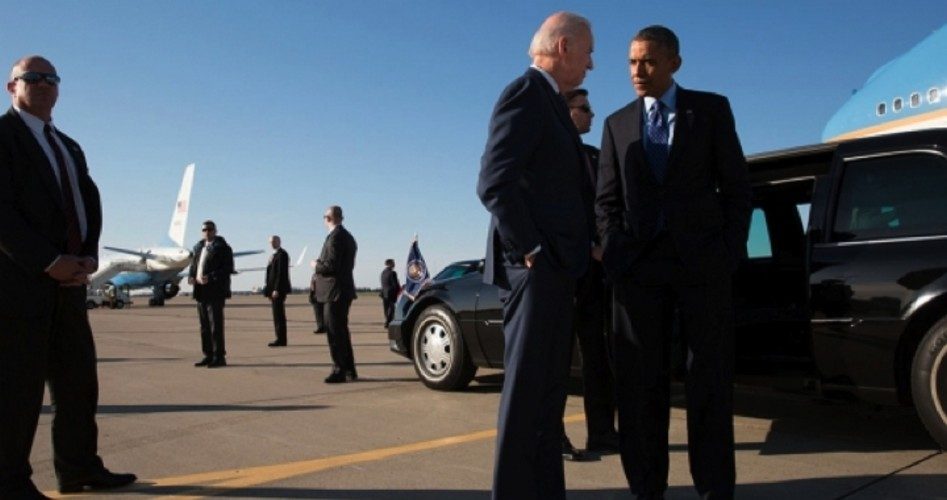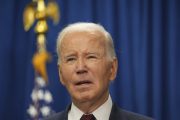
President Obama left Tuesday on a weeklong trip to Asia to try to jumpstart a stalled multi-national trade agreement that is a critical component of the president’s promise to “pivot” American economic attention toward that continent.
Since his reelection in 2012, President Obama has been forced to focus on domestic issues, chief among which was the ObamaCare rollout debacle. Not that foreign policy hasn’t had its time in the foreground, speaking specifically of Syria and Ukraine.
Now, however, the Trans-Pacific Partnership (TPP) will be brought front and center, and the president reckons the time is right to renew his effort to solve the problems plaguing the approval of the 12-nation regional trade pact.
Ironically, domestic opposition to the agreement is perhaps more strident than any problems pointed out by would-be TPP trade partners. As reported by Politico:
The trip gives the president a high-profile opportunity to ignite action in Congress on trade legislation that is stalled largely because of opposition from fellow Democrats. But even under the most optimistic scenario, that seems like a long shot.
“I basically think the White House knows this is over,” Rep. Louise Slaughter (D-N.Y.) recently told reporters, in regard to the stalled trade promotion authority bill, or “fast track,” that would allow Obama to submit the TPP agreement to Congress for a straight up-or-down vote without any amendments.
President Obama used the State of the Union address in January as an opportunity to request Trade Promotion Authority (TPA) from Congress.
TPA is a tool that the president demands be in the U.S. trade representative’s bag when he sits down with his colleagues from the other TPP participant nations.
Not so fast. The Washington Post reported on February 19 on the pressure the president is feeling from his own party to pump the brakes on the TPP and fast track authority:
Already, Senate Majority Leader Harry M. Reid (D-Nev.) and House Minority Leader Nancy Pelosi (D-Calif.) are opposed to moving forward with granting Obama fast-track authority.
“Everyone would be well-advised just to not push this right now,” Reid said late last month. He’s generally opposed to large global trade agreements.
Pelosi doesn’t oppose the concept of fast-track, but said last week that she is against a bipartisan measure introduced by Sens. Max Baucus (D-Mont.), Orrin G. Hatch (R-Utah) and Rep. Dave Camp (R-Mich.) that would give Obama the authority.
Resistance from Reid and Pelosi usually would be enough to at least ease the White House push. But Obama and Vice President Biden have also been directly confronted on the issue in recent weeks by rank-and-file members. But 151 House Democrats co-signed a letter late last year written by Rep. Rosa DeLauro (D-Conn.) to voice opposition to fast track authority and the TPP — more than half of the caucus. And during a recent closed-door meeting at the White House, Obama took two questions on the subject, while Biden faced a grilling on the subject at the House Democratic policy retreat last week.
Others in his party have pointed out what should be obvious dangers of the TPP. The Politico article contains a quote from a Democratic lawmaker.
“TPP would force Americans to compete against workers from Vietnam, where the minimum wage is $2.75 per day,” Rep. Rosa DeLauro (D-Conn.) said. “It threatens to roll back financial regulations, environmental standards and U.S laws that protect the safety of drugs and food and the toys we give our kids.”
One of the biggest cheerleaders for the TPP is longtime Republican Senator Orrin Hatch, who has spent months now pushing the president to lean harder on his own party to get behind the TPP.
In a November 2013 op-ed, Hatch called for quick approval of the TPP and for “breaking down trade barriers.”
Hatch, a consistent supporter of all things globalist, argues that when one is presented with the “facts” about the TPP, that person would join him in pushing for the agreement’s passage.
Calling the TPP a “great opportunity not only for Utah, but for the entire country,” the seven-term senior senator from the Beehive State writes that “despite the wide bipartisan support for free and fair trade agreements, there are those who fear that free trade agreements are merely an opportunity for corporations to ship jobs overseas.”
Hatch goes on to warn those wary of the TPP that should the United States fail to participate fully in the trade pact, American jobs will be at risk, claiming that “to disengage from trade negotiations makes no sense for our nation.”
With all due respect to a man who has been in the Senate since Jimmy Carter was president, the TPP is neither a free nor a fair trade agreement and is a legitimate threat to the economic security of the United States and to the right of the people to rule.
As with the multitude of similar trade pacts the United States has formed, the ultimate aim of the TPP is the creation of a regional super government — thus the stonewalling of federal lawmakers who dare seek to assert some sort of oversight.
In the case of the TPP, the zone would be called the Free Trade Area of the Asia Pacific (FTAAP). Members of the proposed “free trade” bloc include all the current TPP participants: Malaysia, Singapore, Japan, Vietnam, Brunei, Australia, New Zealand, Peru, Mexico, Chile, Canada, and the United States. The regional trading partnership is intended to establish “a comprehensive free trade agreement across the region.”
Economic and political integration will push the once-independent United States of America into yet another collectivist bloc that will facilitate the complete dissolution of our nation and our states into no more than impotent members of a one-world government.
In an article examining the devastating effects of the TPP, William F. Jasper, senior editor of The New American, identified the end game for these globalists and their secretly planned trade pacts. Wrote Jasper:
The architects and promoters of the TPP and FTAAP frequently point with admiration to the “integration” process of the European Union (EU) as the model they would like to see implemented for the Asia-Pacific rim nations. As with the Transatlantic Trade and Investment Partnership (TTIP), the Trans-Pacific Partnership has been designed to follow the EU example of relentless widening and deepening, constantly eroding national sovereignty, while building “transnational governance” that is not restrained by the checks and balances of national constitutions.
Equally significant is that 600 industry lobbyists and “advisors,” as well as unelected trade representatives, are at the table, while representatives from the public at large and businesses other than huge monopolies are conspicuously absent.
Each of the “partners” to the pact, including foreign corporations, would be exempted from abiding by American laws governing trade disputes. Moreover, the sovereignty of the United States and the Constitution’s enumeration of powers would once again be sacrificed on the altar of global government by subordinating U.S. laws passed by duly elected representatives of the people to a code of regulations created by a team of transnational bureaucrats.
Americans who study the subject realize that the domestic legal processes being carried out in secret by the globalists sitting around the TPP negotiating table is an attack on American laws, American courts, American freedom of expression, American sovereignty, and the American Constitution.
The situation is dire indeed. In a recent video presentation, William F. Jasper makes a compelling case for his claim that the TPP is “more dangerous than ObamaCare.”
Like ObamaCare, TPP poses a serious threat to our sovereignty and the principle of enumerated powers.
Joe A. Wolverton, II, J.D. is a correspondent for The New American and travels nationwide speaking on nullification, the Second Amendment, the surveillance state, and other constitutional issues. Follow him on Twitter @TNAJoeWolverton and he can be reached at [email protected].



